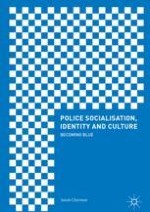2017 | OriginalPaper | Buchkapitel
5. Learning to Become a Police Officer: Police Socialisation
verfasst von : Sarah Charman
Erschienen in: Police Socialisation, Identity and Culture
Aktivieren Sie unsere intelligente Suche, um passende Fachinhalte oder Patente zu finden.
Wählen Sie Textabschnitte aus um mit Künstlicher Intelligenz passenden Patente zu finden. powered by
Markieren Sie Textabschnitte, um KI-gestützt weitere passende Inhalte zu finden. powered by
